The third and final Spring Masters New York (6–9 May) at the Park Avenue Armory might be likened to a sacrificial lamb for a greater cause, or at least a greater fair. In 2017 it will be reincarnated as one of the two hotly anticipated TEFAF New York fairs and, although its organisers say otherwise, with that in mind it’s hard not to see Spring Masters 2016 as a soft launch.
This precocious young fair, offering a mix of art, design, furniture and jewellery, has already changed identities. It started as the Spring Show NYC in 2011, but in 2013 it was acquired by Jeff Rabin and Michael Plummer of art advisors Artvest, who ‘re-conceptualised and rebranded it’ as Spring Masters.
In recent years, New York has been curiously lacking in a vibrant, truly international fair for art and antiques. Although modest in scale at 60 exhibitors, even before the TEFAF hook-up Spring Masters was tipped to take on that mantle; it is well timed to coincide with Frieze New York (5–8 May) and the season’s Impressionist & Modern sales. It was when Patrick van Maris took over as CEO of TEFAF Maastricht last year that, keen to export the brand, he approached Rabin and Plummer for their opinion on a US expansion. From there, the association grew. The Artvest duo already had their sights on Brian and Anna Haughton’s International Show, now acquired and set to become TEFAF New York Fall (22–27 October). Gaining tenure of the Armory is notoriously tricky, so securing two plum spots in the Big Apple’s art calendar is a boon.
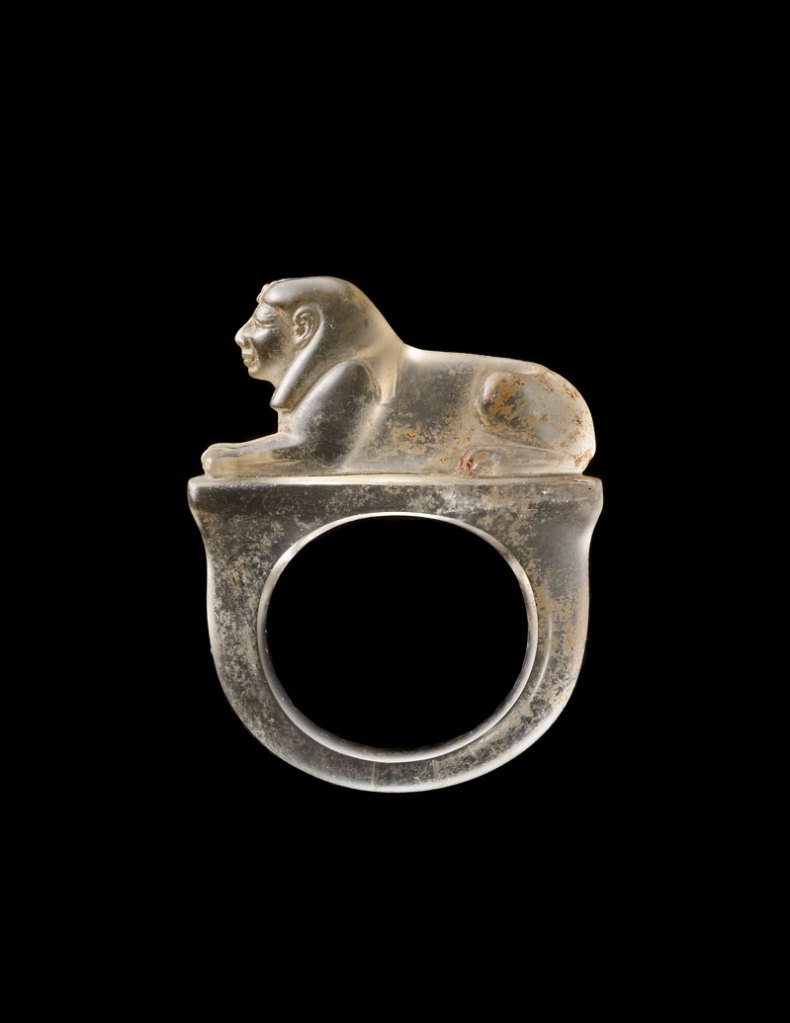
Ring with a sphinx (1295–1069 BC), Egyptian, 19th–20th Dynasty. Phoenix Ancient Art ($750,000)
Is this year’s Spring Masters a test run for TEFAF New York? ‘No,’ says Rabin, ‘we’ve had rave reviews in the past two years for Spring Masters. We bought an old fair and rejuvenated it, with the hexagonal stand design which hadn’t been done before.’ Indeed, Rafael Viñoly’s ‘honeycomb’ stand format will have its last outing this May as Tom Postma, designer of TEFAF Maastricht, masterminds TEFAF’s first New York outing in the autumn.
Postma, says Rabin, has created a ‘spectacular concept that will transform the space to an extent not seen before’ for the new fairs, which will take over both the enormous main Drill Hall and some of the period rooms upstairs. Although not an entrance exam for TEFAF New York, Rabin does ‘get the impression many exhibitors have made extra efforts to up their game’ for this final Spring Masters and ‘there are already many more applications for the Fall fair than we have availability’. Applicants include some exhibitors of historical art that will not be able to take part in the modern and contemporary-focused TEFAF New York Spring (4–9 May 2017).
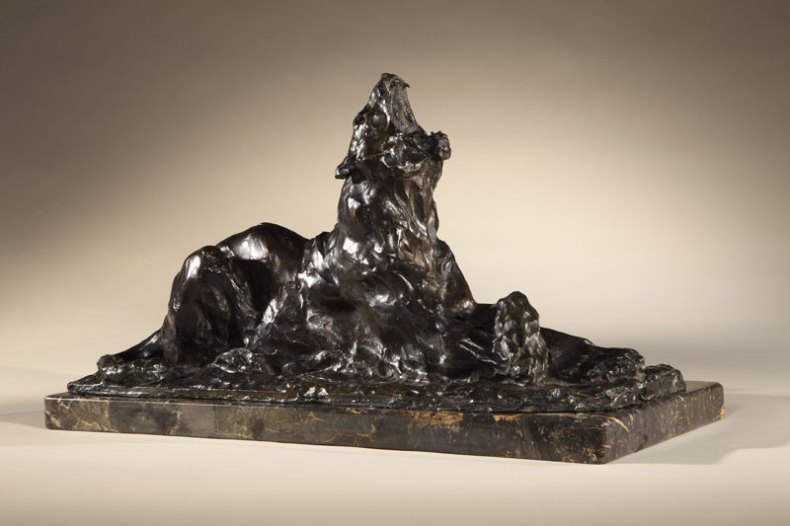
Roaring Lioness (1903), Rembrandt Bugatti. Sladmore Gallery ($2m)
For now the original concept of a cross-collecting fair holds true, says Rabin. ‘While there is more of a bent towards modern and contemporary works, there are still a lot of fantastic Old Master galleries and others offering a range for the cross-collector.’ The latter include Old Master specialists Colnaghi, Tomasso Brothers Fine Art with Renaissance and neoclassical sculpture, and antique and modern tapestries courtesy of Vojtech Blau. Phoenix Ancient Art exhibits an exquisite Egyptian rock crystal ring, a sphinx resting on the bezel, dating to the Ramesside period of the New Kingdom (1295–1069 BC). The form was developed during the reign of Tutankhamun and those topped with scarabs, cats, frogs, sometimes lions, became popular, worn as talismans. Less common is the sphinx, as are rock crystal examples as gold was more commonly used.
London’s Sladmore Gallery is among the new exhibitors, in what is its first overseas fair in three years. ‘Spring Masters has a fresh feel to it, not just as a new fair but in its design and attitude,’ says the gallery’s Flo Horswell. The dealership is showing a group of works by Rembrandt Bugatti to mark the centenary of the Italian sculptor’s death. One of his ‘trophy’ pieces on display is Roaring Lioness, a large bronze dating to 1903, the year Bugatti first exhibited at the Venice Biennale. As for 2017, Horswell says it will be ‘a shame not to continue with the fair next year’, but Sladmore’s decision will depend on the changes TEFAF has planned.
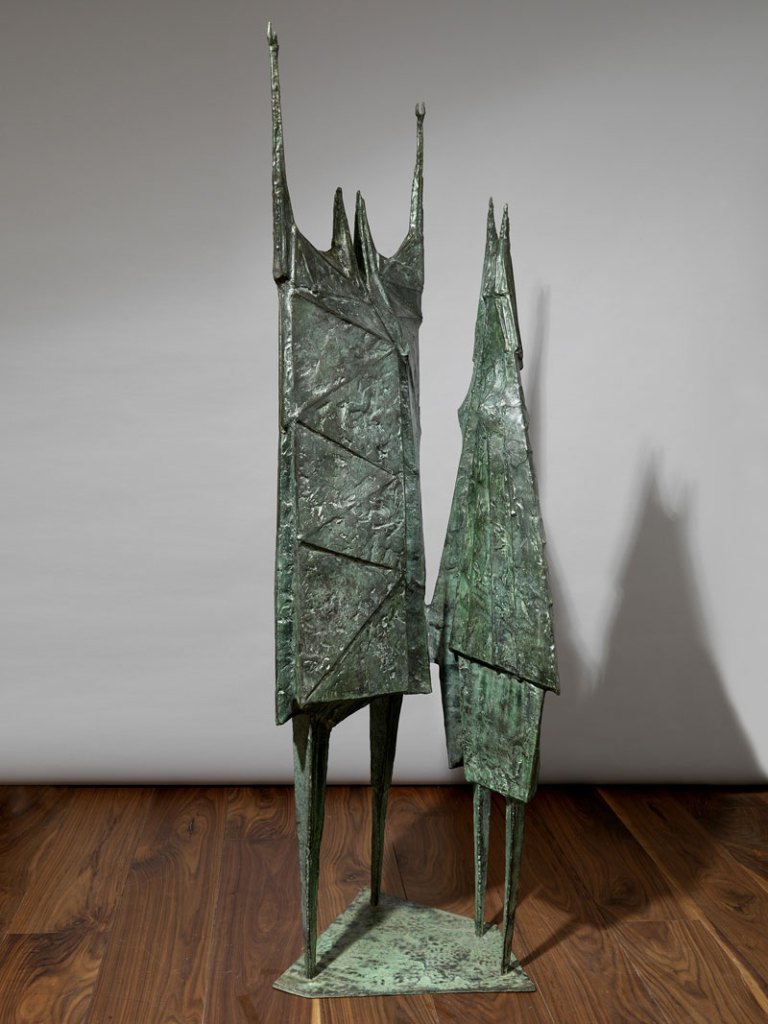
Teddy Boy and Girl II (1957), Lynn Chadwick. Osborne Samuel ($2m)
Peter Osborne of fellow London gallery Osborne Samuel hopes to continue under the TEFAF banner next year, ‘although we will have to come up with a really good proposal to get in as space will be limited’. Among the modern British paintings and sculpture it is bringing to New York is Lynn Chadwick’s Teddy Boy and Girl II, described by Osborne as ‘the most important sculpture we have ever handled’. Previously in the same collection for 50 years, the bronze is from an edition of four and was cast by Susse Fondeur, Paris, in 1961. The group was originally created in 1957 when Chadwick’s career was at its height, fresh from winning the International Sculpture Prize at the Venice Biennale the previous year.
Also in keeping with the modern focus is René Magritte’s Le Baiser of around 1957, an unusually large (for the artist) gouache with a provenance to the Parisian dealer and collector Alain Tarica, and offered by David Benrimon Fine Art. This lyrical work, the bird filled with inky night sky against the grey daylight beach, explores Magritte’s oiseau de ciel, or Sky Bird, theme. Indeed it was another depiction of L’Oiseau de Ciel, commissioned in 1965 by the Belgian airline, Sabena, and used as their symbol, which helped to pay off the employees of the firm when it went bankrupt, after it sold in 2003 for €3.4m. This version has an asking price of $3.6m.
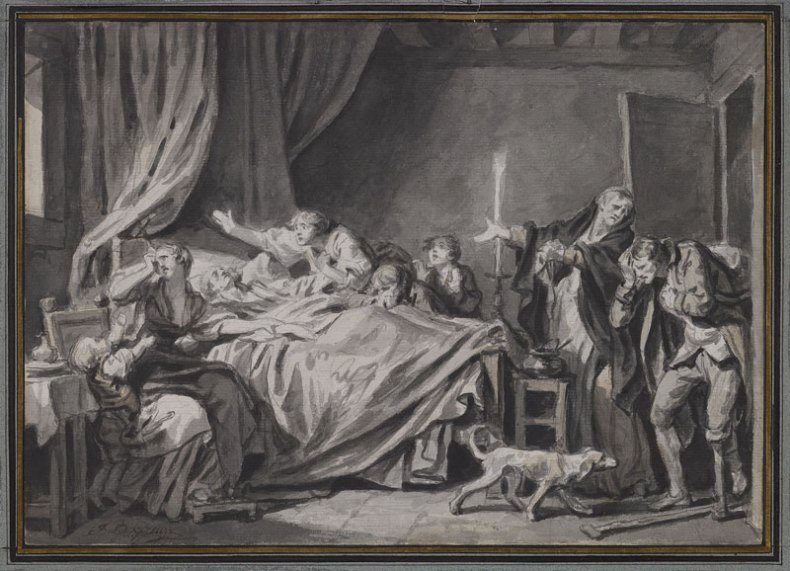
The father’s curse: The punished son (c. 1778), Jean-Baptiste Greuze. Didier Aaron ($175,000)
Exhibiting for the first time, Didier Aaron has hopes of ‘crossover’ buying and, alongside its Old Master, 18th- and 19th-century art, will exhibit four contemporary artists who ‘reimagine classic modes of art’ – Andrew Zega, Victor Koulbak, Nigel van Wieck and Victor Edelstein. A study by Jean-Baptiste Greuze (1725–1805), titled The father’s curse: The punished son, is among the 18th-century works. It was done for one of the two paintings on the theme of the father’s curse, Le fils ingrat and Le fils puni (1777–78), now in the Louvre, depicting an errant son returning home at the moment of his father’s death.
Of the future, director Alan Salz says: ‘Given the strong identity of Didier Aaron with Old Masters and the 19th century, we are more interested in participating in the Fall version than the Spring one.’ But, he too adds the caveat: ‘Of course, there is no guarantee that we will be accepted.’ Such is the power of the TEFAF brand.
Spring Masters New York takes place at the Park Avenue Armory from 6–9 May.





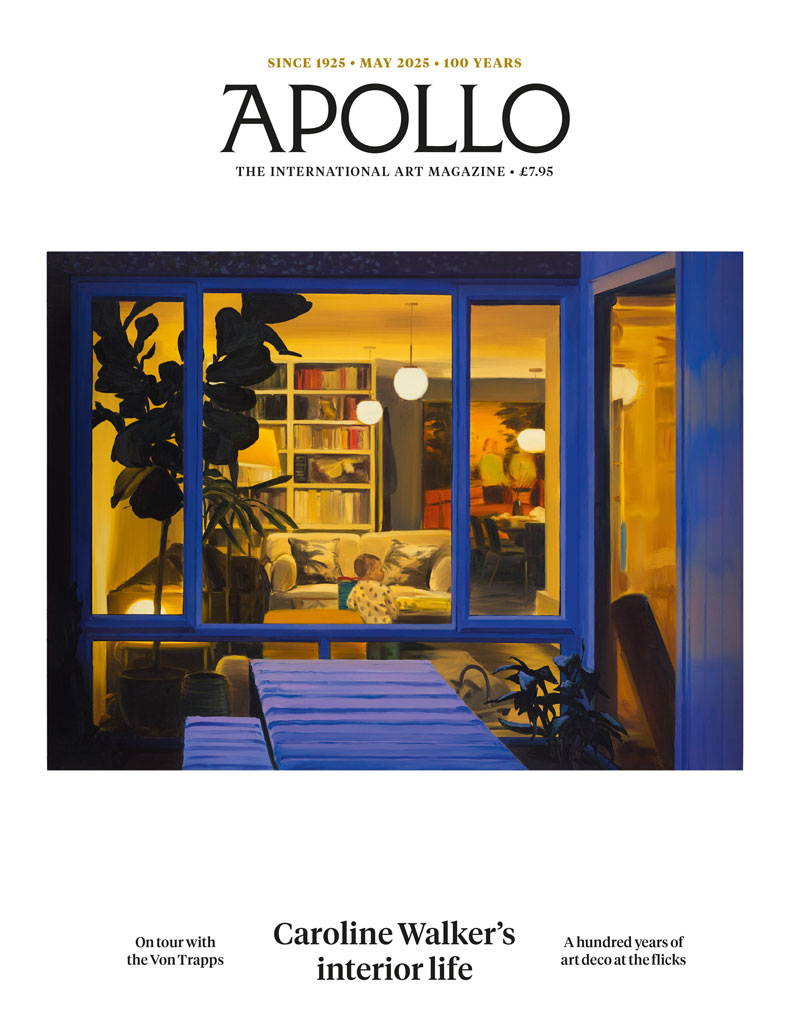








![Masterpiece [Re]discovery 2022. Photo: Ben Fisher Photography, courtesy of Masterpiece London](http://zephr.apollo-magazine.com/wp-content/uploads/2022/07/MPL2022_4263.jpg)
Suzanne Valadon’s shifting gaze